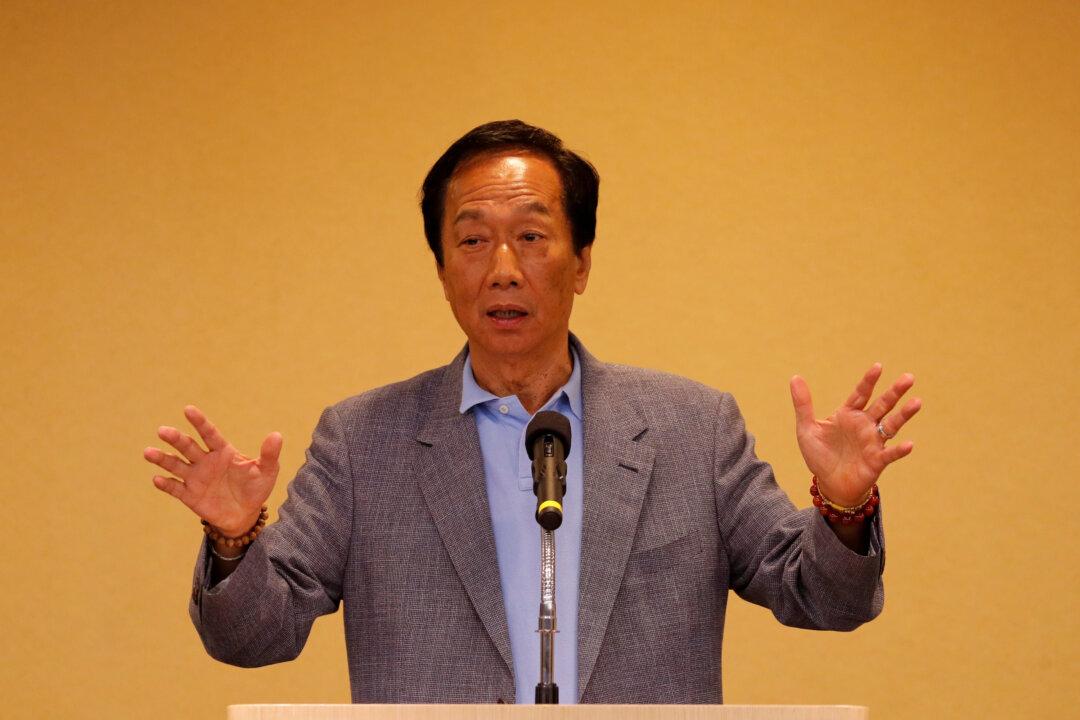TAIPEI–Terry Gou, founder of Apple supplier Foxconn, in a surprise move on Sept. 16 said he will not contest in Taiwan’s 2020 presidential election.
Gou, Taiwan’s richest person with a net worth of $7.6 billion according to Forbes, said in a statement late on Monday he would not join the already competitive race, after losing the presidential nomination from the opposition, China-friendly Kuomintang party (KMT) in mid-July.





